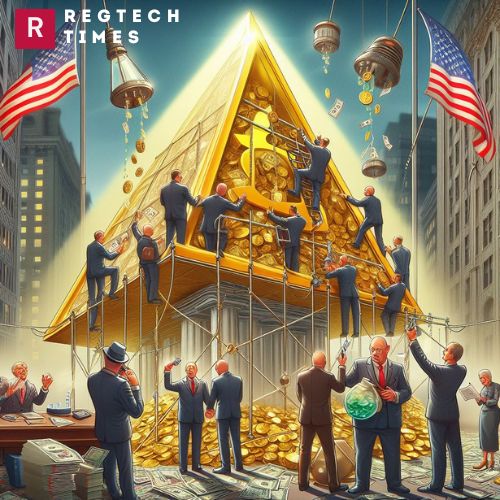In the intricate world of finance, where fortunes are made and lost on the turn of a dime, understanding complex terms like hedge funds and Ponzi schemes is crucial. Recently, the sentencing of Michael Wayne Williams, a hedge fund manager, for operating a multimillion-dollar Ponzi scheme sheds light on the dark underbelly of financial deception. This case not only highlights the importance of comprehending these terms but also underscores the need for vigilance in the investment landscape.
Understanding Hedge Funds
Hedge funds, often regarded as the enigmatic players of the financial markets, are investment funds managed by professional portfolio managers. These funds employ a diverse range of strategies, from long-short equity positions to derivatives trading, with the aim of generating high returns for their investors. Unlike traditional investment funds, hedge funds are not subject to the same regulatory requirements, allowing them to take on riskier positions and employ more complex strategies. These funds typically cater to wealthy individuals and institutional investors due to their sophisticated nature and higher risk profile.
The Rise and Fall of Highguard Capital
Michael Wayne Williams, the founder and operator of Highguard Capital, a hedge fund management company based in Miami, Florida, was found guilty of operating a multimillion-dollar Ponzi scheme. Williams convinced his victims to invest over $3.6 million in Guardian Opportunity Management. Instead of investing the funds as promised, Williams used the money for undisclosed and unauthorized purposes. This included settling civil lawsuits accusing him of fraud and repaying investors from discontinued funds that he previously managed.
Decoding Ponzi Schemes
A Ponzi scheme is a fraudulent investment scheme that generates returns for earlier investors using funds contributed by new investors rather than through legitimate investment activities. Named after the notorious swindler Charles Ponzi, these schemes often collapse when the flow of new investor funds dries up, leaving later investors empty-handed and early investors with ill-gotten gains.
The Mechanics of a Ponzi Scheme
At the heart of a Ponzi scheme is a cycle of deception. New investors are lured in with the promise of high returns, and their investments are used to pay off earlier investors. This creates the illusion of a successful investment strategy, attracting more investors and allowing the scheme to continue. However, this cycle is unsustainable. Without a steady influx of new investors, the scheme eventually collapses, leaving most investors with significant losses.
The Deception Unveiled
Williams’ modus operandi was simple yet effective. He persuaded investors to pour over $3.6 million into Guardian Opportunity Management, assuring them of substantial profits. However, instead of investing the funds as promised, Williams diverted the money for undisclosed and unauthorized purposes. Some of these funds were used to settle civil lawsuits accusing him of fraud, while others were used to repay investors from discontinued funds that he previously managed. The cycle of deception continued until the scheme unraveled and Williams was brought to justice.
Seeking Justice and Restitution
The unraveling of Williams’ Ponzi scheme was the result of a diligent investigation by the FBI Washington Field Office, which uncovered the extent of his fraudulent activities. In October 2023, Williams pleaded guilty to wire fraud, acknowledging his role in orchestrating the scheme that defrauded investors. As a consequence, he was sentenced to one year and one day in prison, serving as a stern reminder that financial fraud will not go unpunished.
In conclusion, the case of Michael Wayne Williams serves as a stark reminder of the dangers lurking in the financial world. Understanding terms like hedge funds and Ponzi schemes is not just a matter of academic curiosity but a necessity for safeguarding one’s financial well-being. Through education, vigilance, and accountability, investors can navigate the treacherous waters of finance with confidence, knowing that they are equipped to spot deception and protect their assets from fraudulent schemes.



